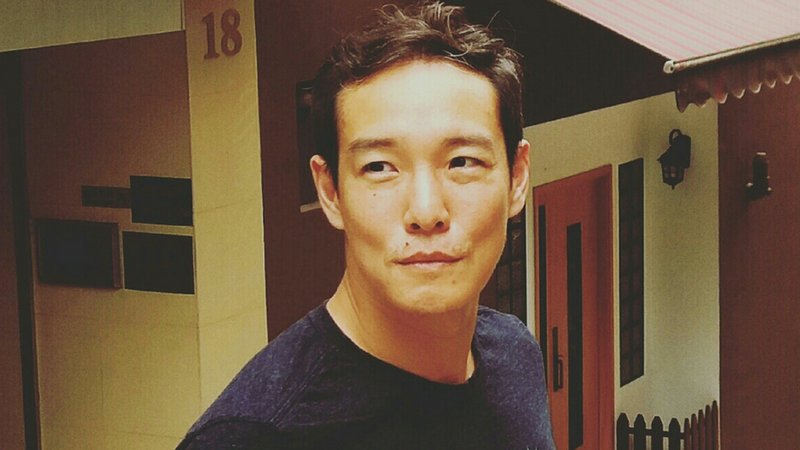
Joon Lee’s under-the-radar “bit of this, bit of that” story is coming to an end.
A month ahead of his first regional roadshow and six months after he set up shop in Seoul, Fox Networks Group’s (FNG) former executive vice president for North Asia and head of original productions for Mainland China is unveiling a co-ordinated plan that runs from creating original IP to a digital theme park project.
Lee’s new outfit, LYD Networks, has also become a first port of call for international brands with North Asia ambitions, eager to tap the media solutionsLee has consolidated under V Plus E.NM. These includeM&A activities, direct investment consultancy, channel distribution/content syndication/licensing and merchandising.
V Plus, already the biggest agency for foreign media in terms of number of brands/channels it represents, has two subsidiaries – production house Studio LYD, which is wholly owned, andLYD Digital Space, in which the company has an equity investment.
Studio LYD specialises in producing Korean dramas and movies with international IP/formats, and is in discussion to expand this to partnerships that will co-develop and co-produce unscripted content.
Three Korean drama projects based on international formats/IP are already in production. One of these is scheduled to start shooting in early 2017. Details remain under wraps for the moment, but could be announced as early as mid-November.
Lee is also developing original IP with partners gathered under the LYD Alliance, which includes Sun Hee Kim's Aftertoon, Fingerprint and Sun Moon Creative.
LYD Digital Space is a partnership between V Plus and JS Kim, the former CEO of CJ E&M and KT Media Hub.The company specialises in developing digital experiences, and is currently working on a digital theme park project in Oppo (near Seoul), Korea.
"Basically, we convert TV content into a fully enhanced five-senses experience via digital technologies such as VR, 3D, hologram, games, etc. in an analogue space," Lee says.
WhileKorean content co-production/co-develo...
Joon Lee’s under-the-radar “bit of this, bit of that” story is coming to an end.
A month ahead of his first regional roadshow and six months after he set up shop in Seoul, Fox Networks Group’s (FNG) former executive vice president for North Asia and head of original productions for Mainland China is unveiling a co-ordinated plan that runs from creating original IP to a digital theme park project.
Lee’s new outfit, LYD Networks, has also become a first port of call for international brands with North Asia ambitions, eager to tap the media solutionsLee has consolidated under V Plus E.NM. These includeM&A activities, direct investment consultancy, channel distribution/content syndication/licensing and merchandising.
V Plus, already the biggest agency for foreign media in terms of number of brands/channels it represents, has two subsidiaries – production house Studio LYD, which is wholly owned, andLYD Digital Space, in which the company has an equity investment.
Studio LYD specialises in producing Korean dramas and movies with international IP/formats, and is in discussion to expand this to partnerships that will co-develop and co-produce unscripted content.
Three Korean drama projects based on international formats/IP are already in production. One of these is scheduled to start shooting in early 2017. Details remain under wraps for the moment, but could be announced as early as mid-November.
Lee is also developing original IP with partners gathered under the LYD Alliance, which includes Sun Hee Kim's Aftertoon, Fingerprint and Sun Moon Creative.
LYD Digital Space is a partnership between V Plus and JS Kim, the former CEO of CJ E&M and KT Media Hub.The company specialises in developing digital experiences, and is currently working on a digital theme park project in Oppo (near Seoul), Korea.
"Basically, we convert TV content into a fully enhanced five-senses experience via digital technologies such as VR, 3D, hologram, games, etc. in an analogue space," Lee says.
WhileKorean content co-production/co-development is a top trend in Asia, Lee says the focus on China is cooling because of political issues between the two countries. "This will leadKorean companies to look for new opportunities," Lee says, predicting more more activity in other parts of Asia as well as within Korea.
The challenges, for companies that have ventures down this path, are already well known, and Lee highlights the ongoing learning curve.
"There are significant gaps in production culture and EQ between the Korean system and others," he says.
For Korean companies, the priority is new revenue streams from new markets, and a dilution of their overwhelming focus on China.
The need to replace dwindling China investment, which could carry on through 2017, has already started to drive global expansion and is, perhaps, the most significant change in Korea's approach to the international market in the past year.
"Korean companies are definitely looking for the new revenue streams by tapping into new markets (as the China opportunity is being restricted for the moment)," Lee says.
"In addition, major Korean rights holders have been actively engaging with both international and regional studios and broadcasters to export/co-develop their IPs/formats. They have made visible progress, although it's not yet massive," he adds.
International content brands are also adjusting their tactics, realising the challenges involved in distributing finished foreign content in Korea, where demand is overwhelmingly local or for Hollywood studio blockbusters.
Against a backdrop of high demand for local shows, Lee says international players "see growing opportunities and potential in working with Korean companies to create content in their own markets or within Korea".
Lee says previous attempts at adapting Korean IP/formats, including feature films, for international markets worked to some extent, "but the real success is yet to come".
Published on 1 November 2016





























